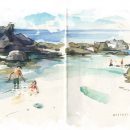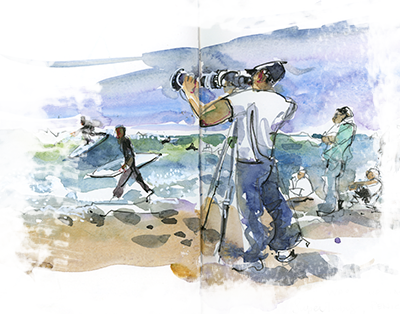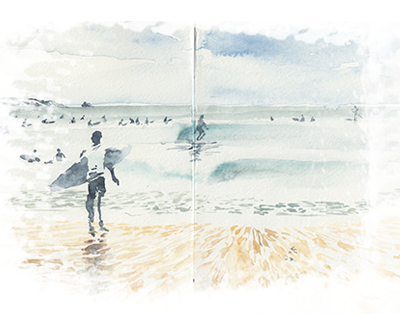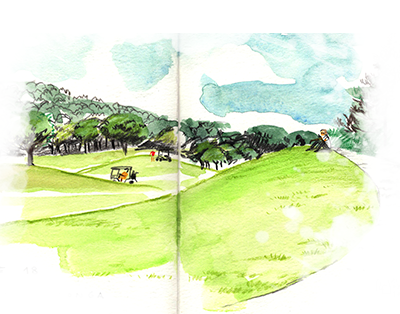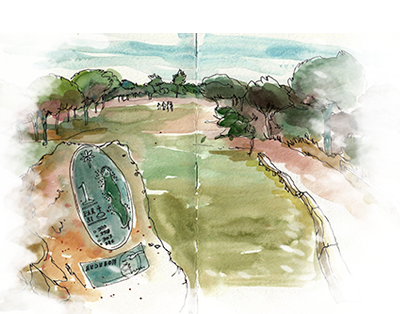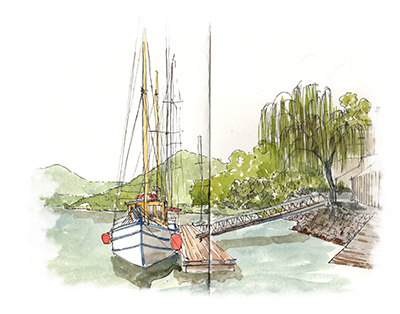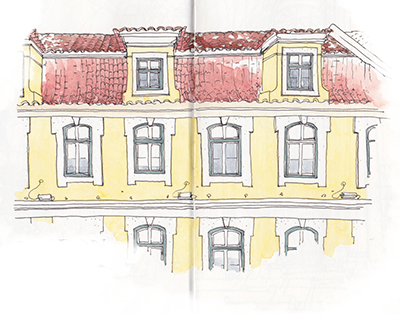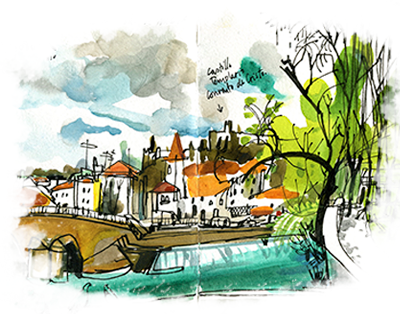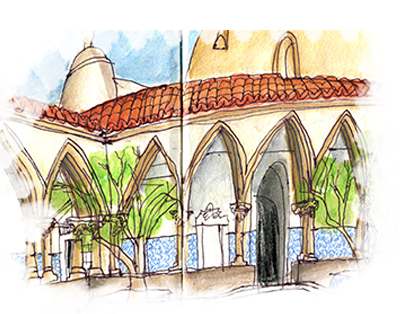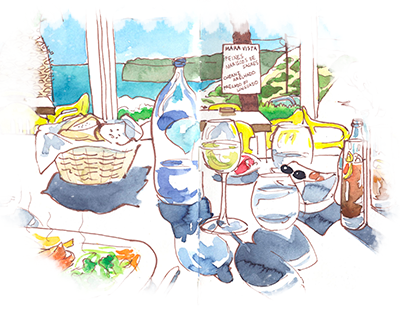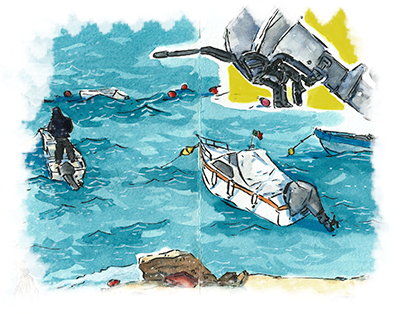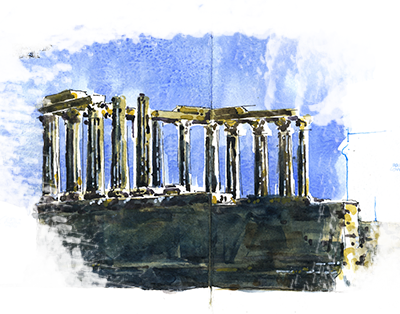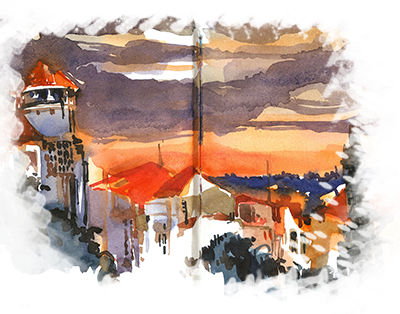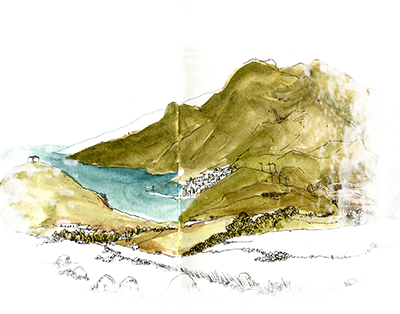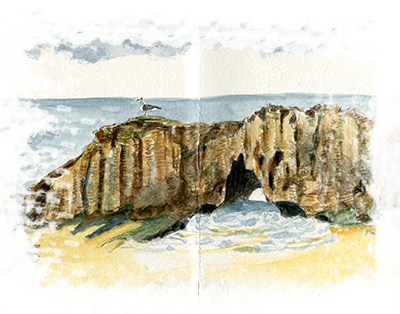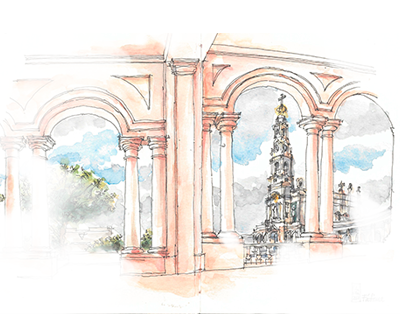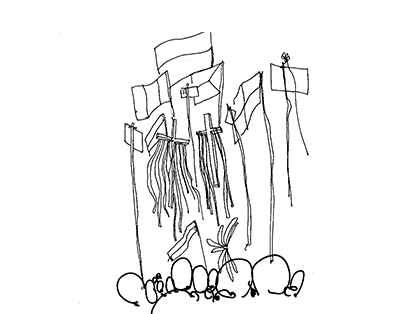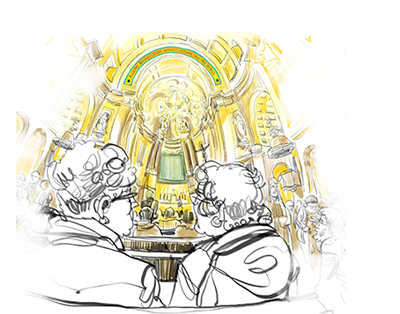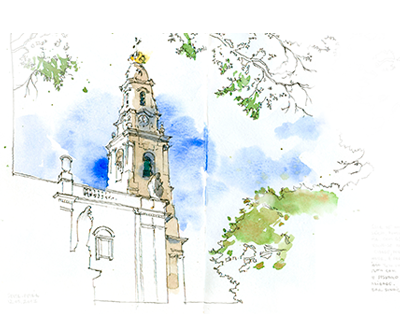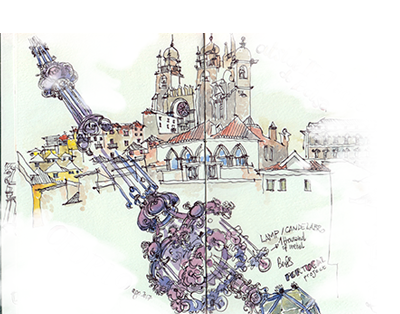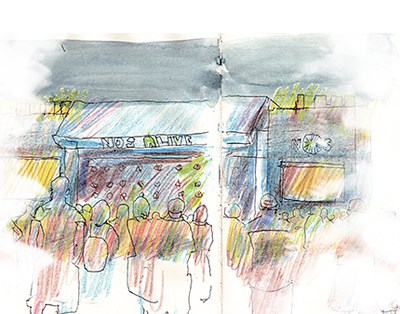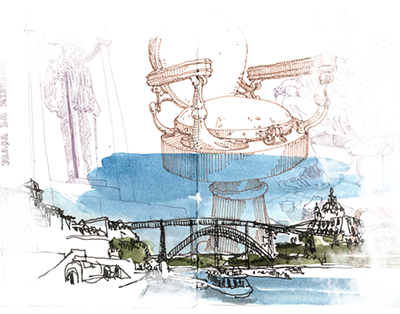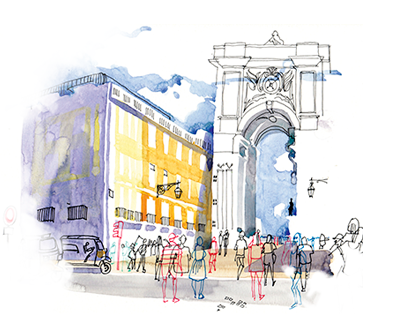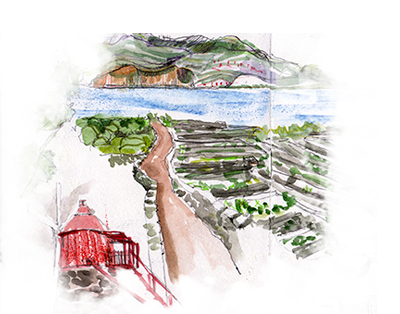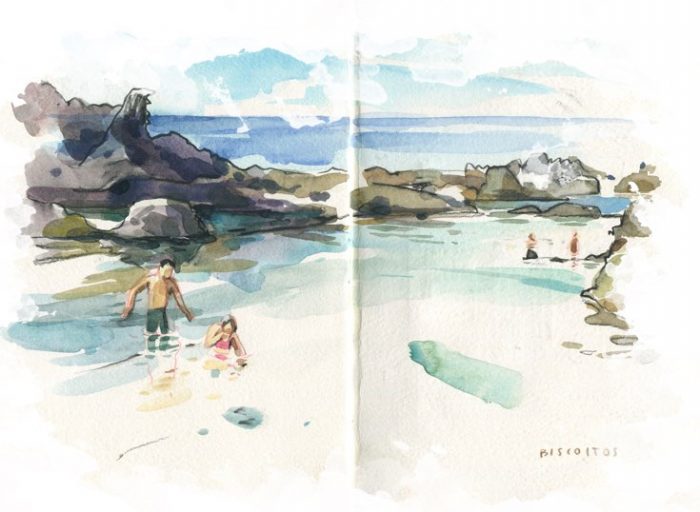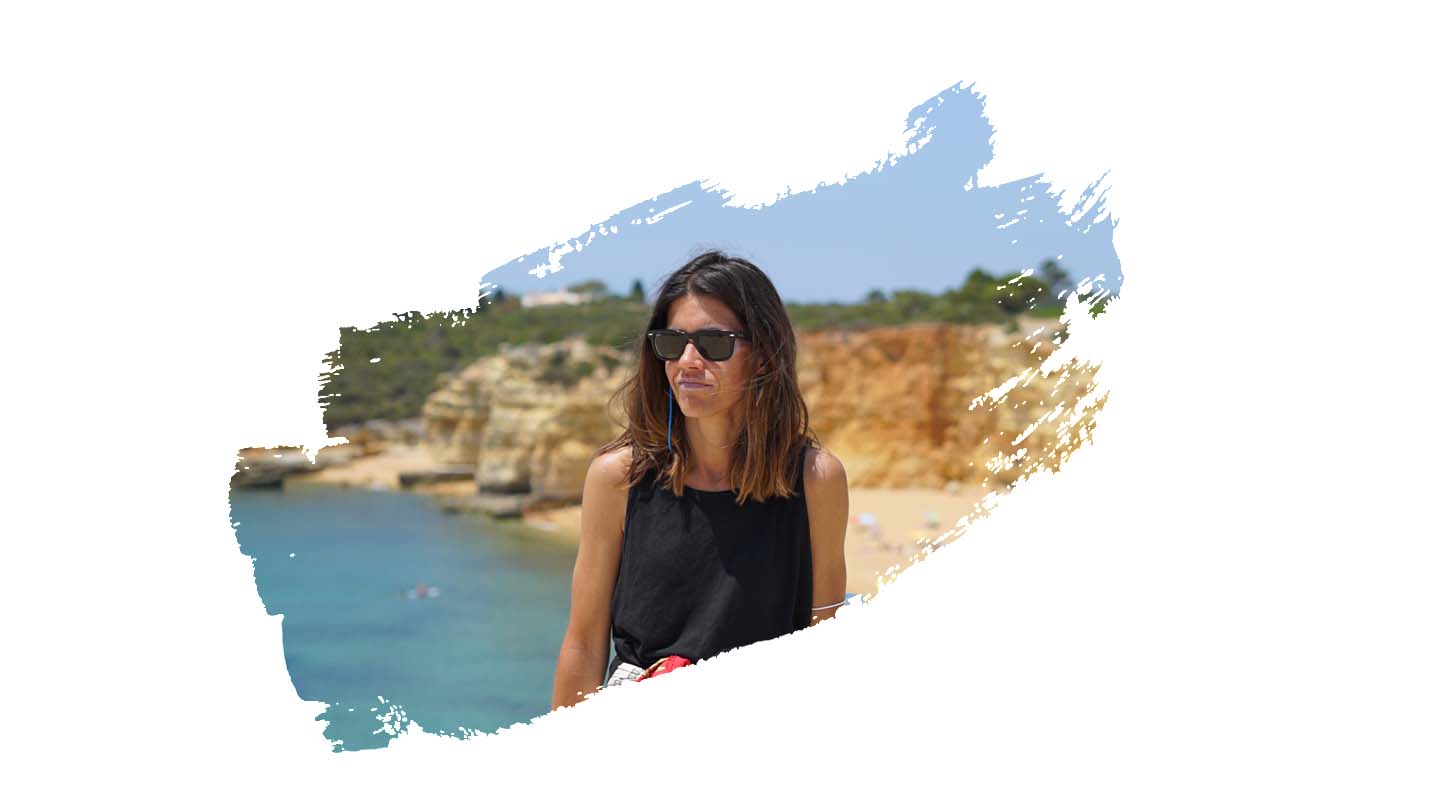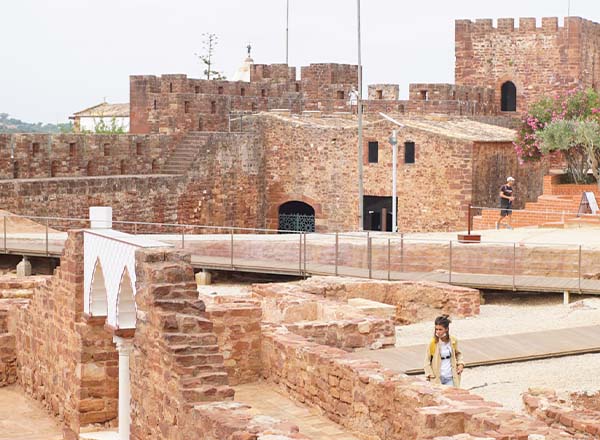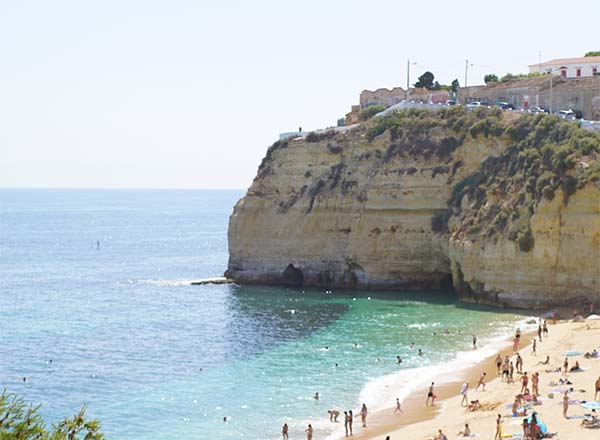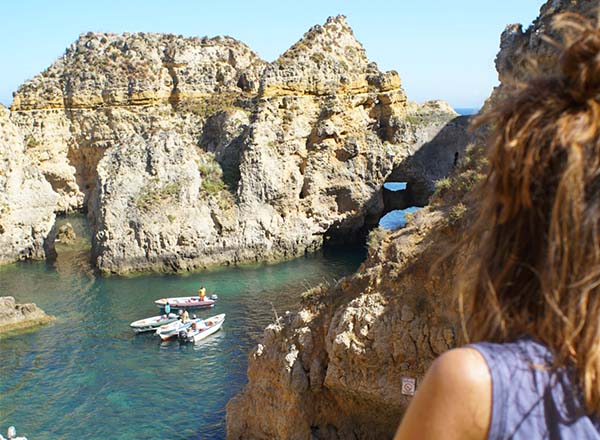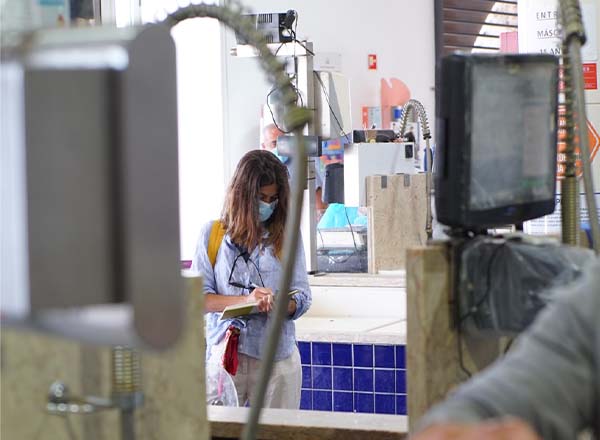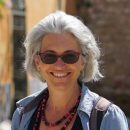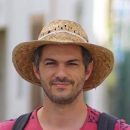Matilde Campilho, a writer from Lisbon, travelled with us to the Algarve to tell us what she saw and felt.
Matilde Campilho was born in Lisbon in 1982 and is the author of two books.
Jóquei, a poetry anthology, and Flecha, a collection of stories. Her poems and other texts have been published in several newspapers and magazines, including “Granta”, “Berlin Quarterly”, “The Common”, “Público” , “O Globo” and “Folha de São Paulo”. She lives and works in Lisbon where she presents and co-authors a radio show on Antena 3.
The first thing you notice is the heat.
In Lagos Market, words leap into the air and twirl around. Shouts, whispers, signs through gritted teeth. It’s a market dialect, held aloft by an orchestra of different sounds: the sound of a large fish being scaled; the sound of coins in the cash register; the sound of tourists dragging their feet and the sound of the fish seller’s heavy feet. The sound of the fish being flung onto the board; the sound of its head being broken with a large knife, as if the fish were a coconut being broken in the tropics. The sound of the fish being gutted, entrails thrown in the bin. After that movement, suspense. Fermata, as the maestro would say. The next sound is almost silent: it’s the sound of what remains of the fish being washed with respect, as if it was being combed and perfumed, ready to go to bed.
It's a cape. At the top, there is a white building that provokes discussion as to its use to this day: castle, fortress, church, everything.




